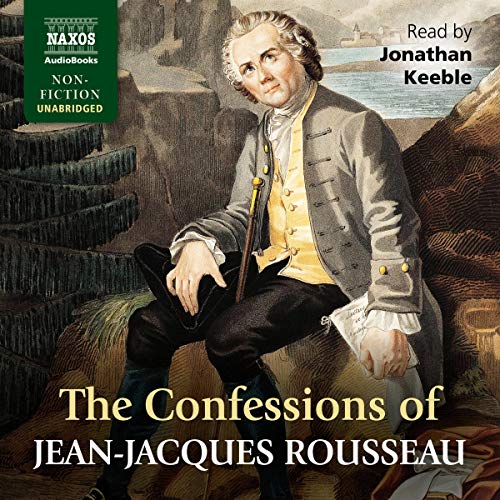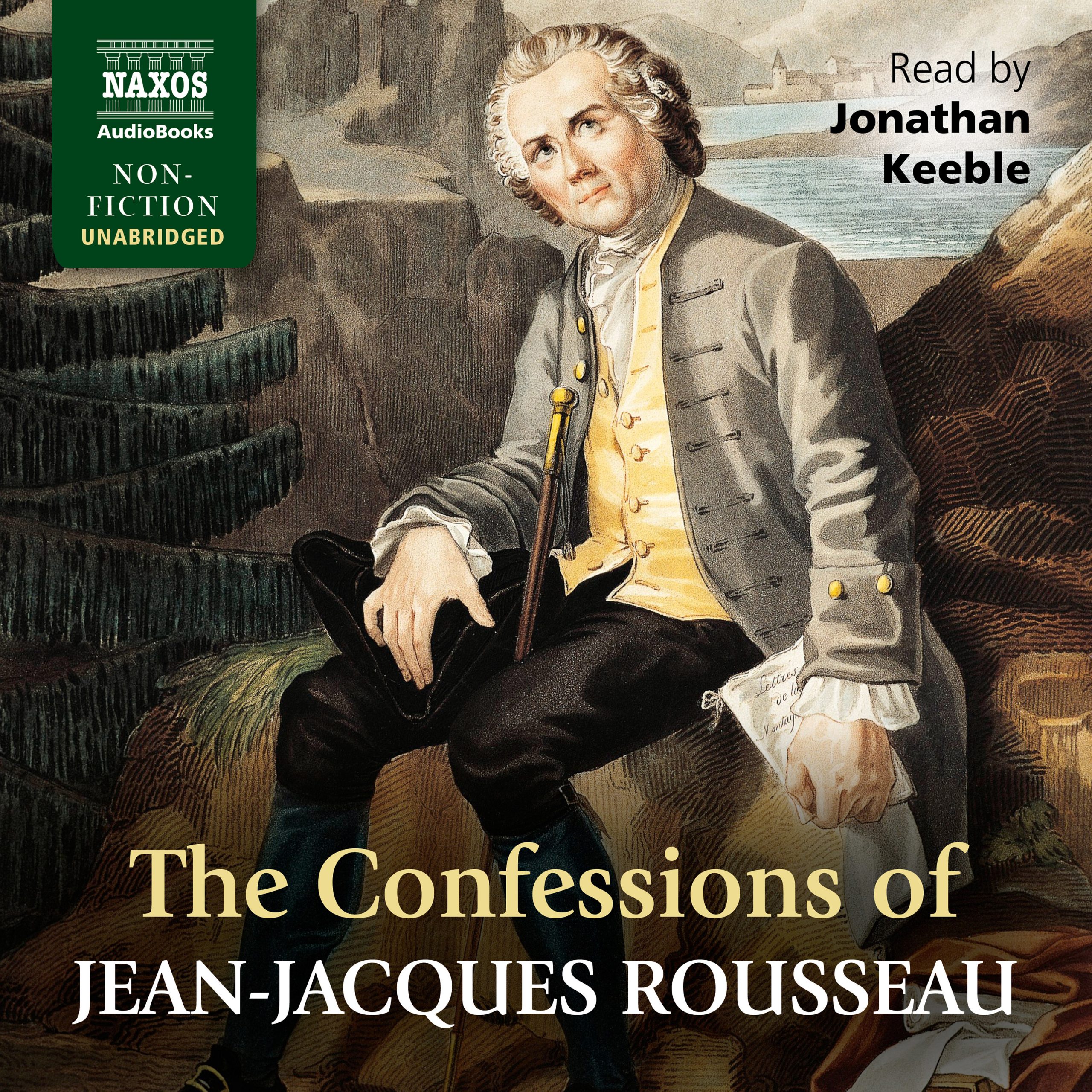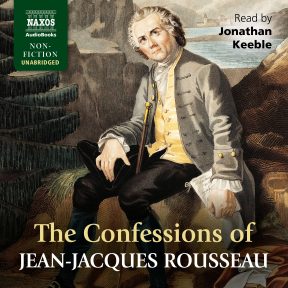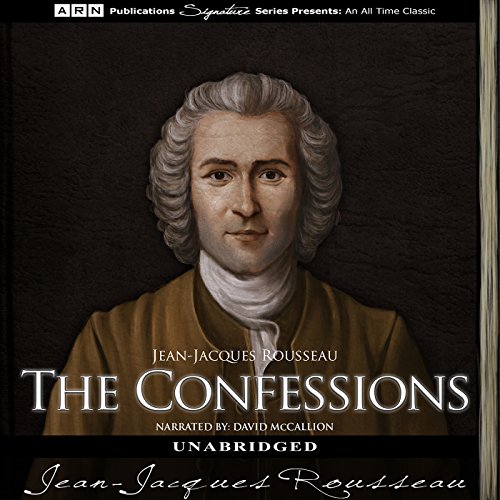Jean-Jacques Rousseau’s “The Confessions” Audiobook offers a deep dive into the mind of the influential philosopher. It reveals his life experiences and personal reflections.
Jean-Jacques Rousseau’s “The Confessions” is a seminal work in autobiographical literature. The audiobook provides listeners with a candid look into Rousseau’s life. He shares his thoughts, struggles, and triumphs with remarkable honesty. This personal narrative sheds light on the complexities of his character and the times he lived in.
Rousseau’s introspective journey offers valuable insights into human nature and society. The audiobook format makes this classic work accessible to modern audiences. It preserves the essence of Rousseau’s writing while offering a fresh way to engage with his story. This makes “The Confessions” a timeless and relevant read.
Early Life Of Jean-jacques Rousseau
Jean-Jacques Rousseau, a renowned philosopher, had a fascinating early life. His experiences shaped his thoughts and writings later in life. The Confessions audiobook reveals much about these early years. Let’s dive into the details of his birth and upbringing and his formative years.
Birth And Upbringing
Jean-Jacques Rousseau was born on June 28, 1712, in Geneva. His mother, Suzanne, died just days after his birth. This tragedy deeply affected his father, Isaac Rousseau. He was a watchmaker by profession. Jean-Jacques was raised with care and attention by his father.
Isaac Rousseau introduced young Jean-Jacques to reading. They read many books together. These books included works by ancient Greek and Roman authors. This early exposure to literature sparked a lifelong love for reading and learning in Rousseau.
Formative Years
Jean-Jacques’ father left Geneva when he was ten years old. Jean-Jacques then lived with his uncle, Bernard. His uncle sent him to school in the countryside. Here, he learned various subjects and developed a keen interest in nature.
During his teenage years, Rousseau apprenticed with an engraver. The engraver treated him harshly. This experience made Rousseau appreciate freedom and autonomy even more. He ran away at the age of 16, starting his adventures across Europe.
Rousseau’s early life was marked by many challenges. These challenges significantly influenced his later works. His autobiography, The Confessions, provides a detailed account of these experiences. The audiobook version brings his story to life, offering listeners a glimpse into his formative years.

Inception Of ‘the Confessions’
Jean-Jacques Rousseau’s ‘The Confessions’ is a monumental work in autobiographical literature. This audiobook brings his life and thoughts to a modern audience. Rousseau’s motivation and context of the era provide a rich backdrop for understanding his masterpiece.
Motivation Behind The Work
Rousseau wrote ‘The Confessions’ to reveal his true self. He wanted to be honest about his life. He aimed to show his emotions and thoughts.
His goal was to offer a genuine account of his experiences. He believed that sharing his story would help others understand him. He also wanted to highlight his unique perspective on life.
Context Of The Era
The 18th century was a time of great change. It was the Age of Enlightenment. People were exploring new ideas about society, science, and human nature.
Rousseau lived in a world where traditional beliefs were questioned. His work reflects the spirit of this era. He was part of a movement that valued reason and individualism.
Rousseau’s experiences were shaped by the events of his time. His work provides insight into the challenges and opportunities of the Enlightenment.
Understanding the context of the era enriches the experience of listening to ‘The Confessions’. It allows us to see how his personal story fits into the broader historical landscape.
Structure Of The Audiobook
The audiobook of Jean-Jacques Rousseau – The Confessions is beautifully organized. It ensures an immersive experience for listeners. The structure is carefully designed to reflect the essence of Rousseau’s autobiography. Each chapter takes you deeper into his life, thoughts, and emotions.
Narration Style
The narration style is captivating and engaging. The narrator’s voice is clear and expressive. Every sentence is delivered with precision. The tone matches the mood of Rousseau’s writings. This keeps the listener hooked from start to finish.
Here are some key features of the narration:
- Clear and articulate voice
- Emotionally resonant delivery
- Well-paced storytelling
Musical Elements
The audiobook includes musical elements that enhance the listening experience. These elements are thoughtfully integrated into the chapters. They add depth and emotion to the narrative. The music does not overpower the narration but complements it perfectly.
Musical elements include:
- Classical background scores
- Soft instrumental interludes
- Ambient sounds that set the scene
| Element | Description |
|---|---|
| Narration | Clear, expressive, and well-paced |
| Music | Classical, instrumental, and ambient |
Themes Explored In ‘the Confessions’
Jean-Jacques Rousseau’s ‘The Confessions’ delves deep into the human psyche. This audiobook offers a rich tapestry of themes. Two prominent themes are self-reflection and honesty and society and solitude. Each theme provides insights into Rousseau’s mind and his view on life.
Self-reflection And Honesty
Rousseau’s work is a beacon of self-reflection. He examines his own life with brutal honesty. He shares his triumphs and failures openly. This level of honesty is rare and compelling. It makes readers question their own lives. They are encouraged to look inward and seek truth.
The audiobook highlights moments of deep personal insight. Rousseau does not shy away from his flaws. Instead, he embraces them and learns from them. This theme pushes listeners to embrace their true selves. It teaches the power of self-awareness and personal growth.
Society And Solitude
Rousseau often discusses the tension between society and solitude. He explores how society shapes individuals. He also examines the need for solitude to find inner peace. Rousseau felt that society often corrupted natural goodness.
He sought solace in nature and solitude. This theme resonates with many today. In a world full of noise, finding peace in solitude is refreshing. The audiobook encourages a balance between social interaction and personal reflection.
| Theme | Description |
|---|---|
| Self-Reflection and Honesty | Encourages deep personal insight and embracing flaws. |
| Society and Solitude | Explores the balance between social interaction and inner peace. |
Listening to ‘The Confessions’ audiobook, you will find these themes engaging. They are still relevant in today’s world. They offer timeless wisdom and insights into the human experience.
Rousseau’s Philosophical Insights
Jean-Jacques Rousseau’s “The Confessions” audiobook offers rich philosophical insights. His ideas challenge our understanding of human nature and society. Below, we dive into some key themes.
Nature Vs. Nurture
Rousseau explored the debate between nature and nurture. He believed humans are inherently good. Society, he argued, corrupts this natural goodness. This idea challenges how we view personal development. It suggests environment shapes behavior more than genetics.
In “The Confessions,” Rousseau shares personal stories. These stories highlight the impact of upbringing and societal influences. He shows how experiences mold character. His insights are still relevant today. They provoke thought on education and social structures.
Free Will And Destiny
Rousseau also delved into free will and destiny. He believed in the power of personal choice. Yet, he acknowledged life’s unpredictability. This duality reflects in his autobiographical work. Rousseau’s life was a blend of his choices and unforeseen events.
He stressed the importance of moral freedom. According to him, true freedom comes from within. External forces should not dictate our actions. This idea promotes self-awareness and personal responsibility. It invites listeners to reflect on their own lives.

Impact On Literature And Philosophy
Jean-Jacques Rousseau’s “The Confessions” is a monumental work. It has left a lasting impact on literature and philosophy. This audiobook captures Rousseau’s deep insights and emotional honesty.
Autobiographical Genre Innovations
Rousseau’s “The Confessions” revolutionized the autobiographical genre. It was one of the first autobiographies to reveal personal feelings. He shared his deepest thoughts and emotions.
Before Rousseau, autobiographies focused on achievements. He changed the focus to the inner self. This inspired many future writers to explore their own lives in depth.
| Before Rousseau | After Rousseau |
|---|---|
| Focused on achievements | Focused on emotions |
| External events | Inner thoughts |
Influence On Future Thinkers
Rousseau’s work influenced many future philosophers and writers. His honest self-reflection inspired thinkers to be more introspective.
- Immanuel Kant admired Rousseau’s moral philosophy.
- Leo Tolstoy was influenced by his ideas on education.
- Sigmund Freud drew on Rousseau’s deep emotional insights.
Rousseau’s exploration of personal freedom also had a significant impact. His ideas laid the groundwork for modern existentialism.
Jean-Paul Sartre and Albert Camus were inspired by his thoughts on freedom and individuality. His influence is still seen in literature and philosophy today.
Controversies And Criticisms
Jean-Jacques Rousseau’s The Confessions is a powerful work. It has sparked many debates over time. The audiobook version brings these controversies to life. Let’s explore the public reception and the modern scholarly debate surrounding this work.
Public Reception
Upon its release, The Confessions stirred strong reactions. Many found Rousseau’s revelations shocking. The public was not used to such honesty. Rousseau’s openness about his flaws was unsettling. Some admired his courage, while others were outraged.
Critics accused him of vanity and self-indulgence. They felt he sought to justify his actions. His personal anecdotes were both praised and condemned. This mix of responses made the book a topic of hot discussion.
Modern Scholarly Debate
Today’s scholars continue to debate The Confessions. The book is both praised and criticized. Some see it as a masterpiece of introspection. Others argue it is self-serving and unreliable.
Modern critics analyze Rousseau’s intentions. Did he write to confess or to manipulate? These questions fuel ongoing debates. Scholars also examine his influence on autobiography as a genre. Rousseau’s style set a precedent for future writers.
In academic circles, The Confessions is a case study. It is used to discuss the ethics of self-revelation. The book’s impact on literature and psychology is undeniable.

Experiencing ‘the Confessions’ Audibly
Listening to an audiobook can be a unique experience. Jean-Jacques Rousseau’s ‘The Confessions’ offers a deep and engaging journey. This format lets you connect with his words in a special way.
Engagement Through Sound
Sound has a powerful impact on our emotions. An audiobook can make Rousseau’s words come alive. You hear the intonation and emotion in the narrator’s voice. This adds depth to the text.
Listening can make long passages feel shorter. The voice can guide you through complex thoughts. This keeps you engaged and attentive.
The Intimacy Of Listening
An audiobook brings a sense of intimacy. It feels like Rousseau is speaking directly to you. You can listen while relaxing or doing daily tasks.
This format allows for multi-tasking. You can absorb Rousseau’s wisdom while on a walk or cooking.
Comparison With The Written Work
Jean-Jacques Rousseau’s ‘The Confessions’ is a classic. Comparing the audiobook with the written work can be insightful. Both forms offer unique experiences to the audience.
Interpretation Differences
The audiobook of ‘The Confessions’ brings a new dimension. The narrator’s voice adds a personal touch. It can change how we perceive Rousseau’s emotions.
In the written work, readers interpret emotions themselves. This can lead to a more personal connection. Both formats have their own charm.
Accessibility And Convenience
The audiobook format is highly accessible. It allows people to enjoy Rousseau’s work anytime. You can listen while driving, walking, or relaxing.
For those who struggle with reading, the audiobook is a blessing. It opens up literature to a wider audience.
The written work demands more focus. You need to sit and read. This can be challenging for busy people.
| Format | Advantages | Disadvantages |
|---|---|---|
| Audiobook |
|
|
| Written Work |
|
|
Legacy And Continued Relevance
Jean-Jacques Rousseau’s The Confessions remains a significant literary work. It captures the essence of human nature and personal reflection. The audiobook version brings this classic to life for modern audiences. Its themes and insights resonate deeply even today.
Enduring Themes
Individualism stands out as a major theme in The Confessions. Rousseau explores personal freedom and self-expression. He emphasizes the importance of being true to oneself. This resonates with modern ideas of self-discovery and authenticity.
Nature is another key theme. Rousseau’s love for nature influences his thoughts and writings. He believes in the purity and simplicity of natural life. This theme is especially relevant in today’s eco-conscious world.
Education and its impact on personal development are also crucial. Rousseau’s insights into learning and growth still inspire educators and learners. His ideas challenge traditional views on schooling and pedagogy.
The Confessions In Contemporary Culture
The Confessions continues to influence modern culture. Its themes and messages appear in various forms of media. Films, books, and art often draw inspiration from Rousseau’s work.
The audiobook version makes The Confessions accessible to a wider audience. People can listen to it during commutes, workouts, or leisure time. This format helps keep Rousseau’s ideas alive and relevant.
Rousseau’s focus on personal authenticity inspires many. His thoughts on nature and education resonate with current societal values. Through the audiobook, new generations engage with his timeless wisdom.
Frequently Asked Questions
What Is The Point Of Rousseau’s Confessions?
Rousseau’s “Confessions” aims to provide an honest and detailed account of his life. He seeks to reveal his true self, including his flaws, to understand human nature better. The work highlights personal introspection and the quest for authenticity.
What Religion Is Jean-jacques Rousseau?
Jean-Jacques Rousseau was born into a Calvinist family. Later, he converted to Catholicism but returned to Calvinism.
What Is The Philosophical View Of Jean-jacques Rousseau?
Jean-Jacques Rousseau believed in the inherent goodness of humans. He emphasized natural human development and social contracts. Rousseau argued that society corrupts individuals. His works inspired democratic ideals and individual freedom. Rousseau’s philosophy focused on education, equality, and personal freedom.
Which Philosopher’s Most Famous Work Was Confessions?
Saint Augustine wrote the famous work “Confessions. ” This autobiographical piece explores his spiritual journey and conversion to Christianity.
Conclusion
Dive into “The Confessions” audiobook and experience Rousseau’s profound insights. This timeless classic offers deep reflections and personal revelations. Listening to Rousseau’s journey enriches your understanding of human nature. Don’t miss this engaging and thought-provoking masterpiece. Enhance your literary collection with “The Confessions” audiobook today.



